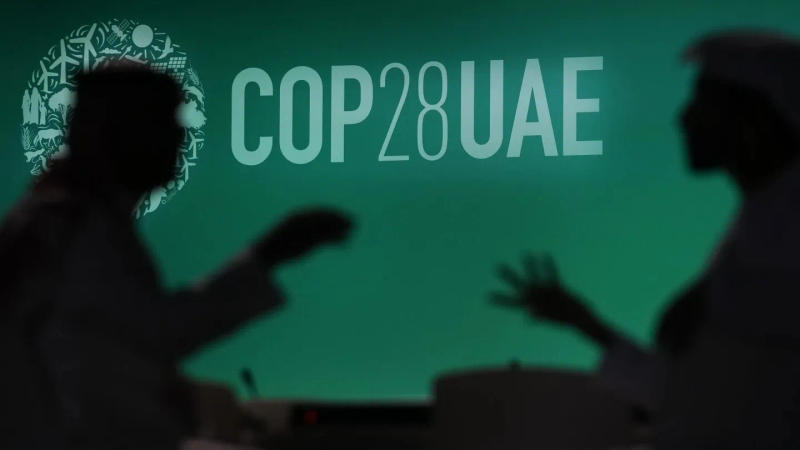Published 17:22 IST, December 6th 2023
UN climate talks near end of first week with progress on some fronts, fossil fuels lurk
Negotiators at a critical United Nations climate conference prepared Wednesday to wrap up their first week of work with moderate progress on some issues, with little time to make a bit more headway.

Negotiators at a critical United Nations climate conference prepared Wednesday to wrap up their first week of work with moderate progress on some issues, with little time to make a bit more headway before government ministers return for a final week that will shape the planet's path forward in the face of crisis. Discussions have been focused on the so-called Global Stocktake — a status of where nations are at with meeting their climate goals to limit warming to 1.5 degrees Celsius (2.7 degrees Fahrenheit) compared to pre-industrial times and how they can get there. On Tuesday, negotiators produced a new draft of the text, but it had so many possibilities in its 24 pages that it didn't give too much of a hint of what will be agreed upon when the session ends next week.
Cedric Schuster, the chair of the Association of Small Island States, said failing on the global stocktake would “make it significantly more difficult to leave this COP saying we can achieve the 1.5 C limit.” He said major emitters and developed countries need to take the lead and ramp up efforts to phase out fossil fuels.
"If we fail, the consequences will be catastrophic,” he said.
At a press conference on Wednesday, German climate envoy Jennifer Morgan said she wanted to see clear language on where the energy transition should be headed and a just phase-out of fossil fuels.
“Negotiations, as are often the case, are a mixed picture right now. We see big differences between individual states in some areas,” she said, “but there is a will to make progress.” Wednesday's sessions were to focus on transport, the second-leading sector for the carbon dioxide emissions warming the planet, with panels like building out EV charging infrastructure and decarbonizing urban freight transportation.
Despite rapid growth of electric vehicles in some countries, oil still accounts for nearly 91 per cent of the energy used in the transport sector, according to the International Energy Agency. And it's a sector that includes hard-to-decarbonize industries such as aviation and shipping, where cutting emissions will require big ramp-ups in production of sustainable aviation fuel, for airplanes, and alternative fuels like hydrogen for ships.
The climate talks notched some measured wins in the first week when nations finalized the creation of a “loss and damage” fund to compensate countries hit by climate disasters. 50 oil companies pledged to reach near-zero methane emissions by 2030, a commitment from the industry to slash greenhouse gases, but “short of what is required,” according to U.N. Secretary-General Antonio Guterres.
Yet environmentalists are intensely focused on obtaining commitments for the world to phase out the use of coal, oil and natural gas. Climate negotiators are zeroing in on exactly how to deal with the fossil fuels that are overheating the planet.
Climate scientist Bill Hare, CEO of Climate Analytics, said the central issue of the meeting "is to reach a conclusion about the phasing out of fossil fuels. And unless we do that, I doubt whether we're going to see an improvement in temperature.” The options in the draft on the future of fossil fuels range from a less-stringent “phasedown of unabated coal power" to a simple but dramatic “an orderly and just phase out of fossil fuels.” Scientists who track climate action said it's crucial to watch the language for loopholes.
“We need to phase out of fossil fuels completely without a back door,” said New Climate Institute's Niklas Hohne. “At this conference, there's actually many back doors being proposed at the briefing table ... mainly for prolonging the life of fossil fuels, and one is to talk about unabated' fossil fuels.” Including “unabated” means allowing the burning of fossil fuels if their emissions can be captured and stored, a technology that's much talked about but really hasn't proven to work well, Hohne and other scientists have said.
Updated 17:23 IST, December 6th 2023




